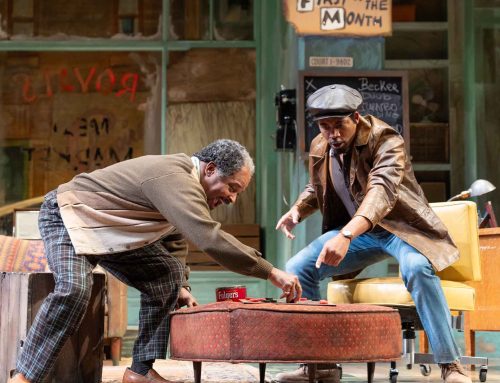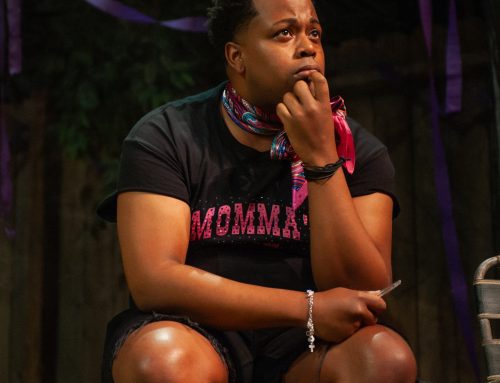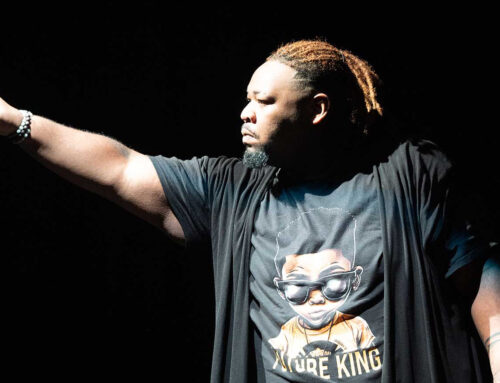at the American Conservatory Theater

This is a conversation play. Two actors are alone on the stage for an 85-minute one-act roller coaster. I flashed on the movie My Dinner with Andre. I loved that film’s ability to renew the conversation and make me want to listen in even longer.
Blackbird is better.
It means more. It handles one of those hot-button topics that start the media and politicians frothing. Its dialog raises insidious question after insidious question.
Moreover, there is no tidying-up of the situation. There’s no relieving final clarity that lets the audience march out together with a single vision. To me, this murkiness is realistic and dramatically necessary.
In fact, after leaving the theater we argued about the characters, their realness, their mental health (“She had lost it. She was AWOL from a mental hospital.” “No way… she has a successful career, remember?” “Only in her mind. Look how she dressed.” “Exactly. She’s dressed just like the successful 20-something year old she says she is.”), over how they changed since they first met, and, of course, over the details of their relationship.
Our argument started in the sidewalk on Geary Street, lasted through our post-matinée cocktails and pizza, kept going at breakfast next morning, and was reprised at dinner last night. It wasn’t only argument. We found ourselves discussing our agreement with the play’s potentially most controversial and non-conformist raised question. But, we happily and heatedly talked about the degrees of motivation for each character, the reasonableness of the script, and whether ultimately the play meant anything.
There was no dispute over the quality of the performance, however. Steven Culp (as Peter/Ray) and Jessi Campbell (Una) took the twists of the words and made them into believable conversation. They were physical in a non-action play, but neither ever looked like they were stretching to add unnecessary movement. They created crazy kinetic tension without stepping over the play’s taut physical limits. The cast was dangerously close to perfection. (Some people complained that Campbell’s English accent came and went, but I didn’t notice.)
Director Loretta Greco blended the acting and crafts into a unified and seamless scene. Everything fit.
The modern office lunchroom set was an effective impersonal backdrop, matching the mood and the pacing. The lighting, center stage and background, added its own soul-draining industrial tint. Friend David F. Draper’s modern costumes were appropriate (except for her boots) and appropriately unhelpful in giving definitive answers to who these characters were.
Blackbird is my type of play. Emotionally menacing, meaningful, and unresolved.
Some in our theater group initially were cooler to Blackbird because they weren’t sure they believed this or that event would happen as told in the script. The next day they said the play was growing on them, although they didn’t need to see it again. Well, it didn’t need to grow on me and from start of the curtain call I knew I will happily see another performance. I say:
![]()





I’ll look for it here…sounds like something that will appear at one of our black-box theatres.
I saw it Saturday night. It was fantastic! I didn’t quite believe him when he said she was the only one. Because the audience had to make stuff up before and after, it made it a better play.